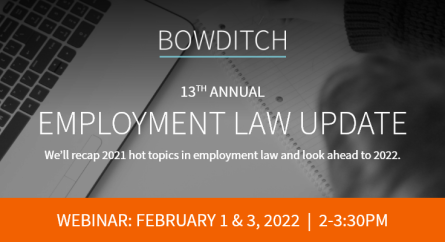Connecticut Legislature Passes Significant Expansion of Paid Sick Leave Benefits for Employees
On May 6, 2024, the Connecticut Senate passed legislation that, once signed into law, will significantly expand the State’s paid sick leave statute, including broadening the statute’s scope to cover almost all employers and workers in Connecticut. Governor Ned Lamont is expected to sign the bill into law shortly, with an effective date of January 1, 2025.
Currently, employers with 50 or more Connecticut employees are required to provide paid sick leave. The revised statute will lower this threshold in three phases between January 1, 2025, and January 1, 2027, until virtually all employers are covered by the law. The schedule is as follows:
- As of January 1, 2025: Employers with 25 or more employees in the State will be covered
- As of January 1, 2026: Employers with 11 or more employees in the State will be covered
- As of January 1, 2027: Employers with one or more employees in the State will be covered
The new legislation also expands the scope of employees who are entitled to paid sick leave. Currently, only statutorily defined “service workers” are guaranteed this benefit. Starting January 1, 2025, virtually all employees will be entitled to paid sick leave, with some limited exceptions for seasonal and certain unionized workers.
Employees start to accrue paid sick leave on their first day of work but cannot use it until after 120 calendar days of employment. Leave must accrue at a minimum rate of 1 hour of leave for every 30 hours worked, up to a maximum of 40 hours of leave. Moreover, employers must allow employees to carry over up to 40 hours of accrued, unused paid sick leave. Alternatively, employers may provide employees with a bank of front-loaded sick time in lieu of any carryover.
Further, the new law expands the reasons for which an employee may take this type of leave. Covered reasons for taking paid sick leave will include time away from work for the following:
- An employee or their family member’s illness, injury, or health condition (including the need for care, diagnosis, and/or treatment)
- Preventative medical care for an employee or their family member
- An employee’s mental health wellness day
- Closure of an employer’s place of business or a family member’s school due to a public order or public health emergency
- Situations in which an employee or their family member has been deemed to pose a risk to the health of others due to exposure to a communicable illness
- Situations in which an employee or their family member is a victim of violence or sexual assault (unless the employee is the perpetrator)
Notably, employers may not ask employees for proof that they are using leave for a covered reason, nor may they ask employees to find shift coverage for their period of leave.
Finally, employers must provide notice to employees regarding the new law by displaying a poster (to be created by the CT Department of Labor) in a conspicuous place in the workplace and providing written notice of the law to current employees by January 1, 2025. Thereafter, employers must provide notice to new employees at their time of hire.
If you have any questions about this topic or any other employment-related issues, please reach out to your Bowditch employment attorney.
Categorized: Employee Benefits, Paid Leave
Tagged In: employee benefits, paid leave, sick leave in Connecticut










